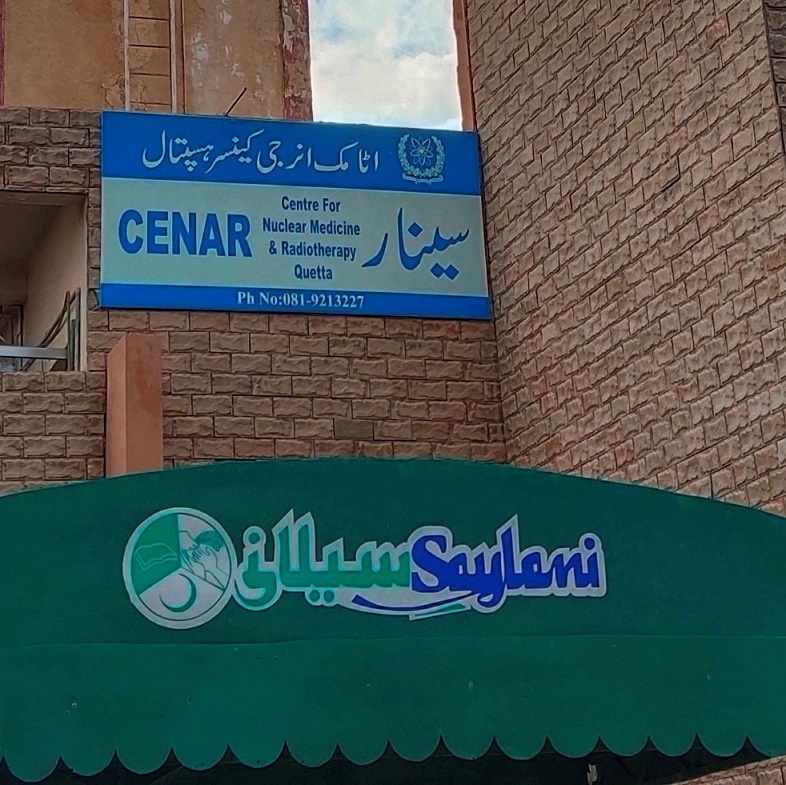A 70-year-old woman, Shahida Bibi, from the Hazara community in Quetta, has had breast cancer for two years. Her husband has passed away, and she has three disabled sons. Her livelihood depends on sewing clothes for others in their tiny house.
Eyes full of tears, she said, “I am not receiving financial assistance for treatment. Previously, I used to receive nine thousand rupees every six months from Zakat funds, but for the past two years, I have not received a single rupee.”
Zain Ul Abidin Khilji has been Chairman of the District Zakat Committee in Quetta since 2018. He mentioned that when he goes to the office, hundreds of eligible individuals approach him because they haven’t received Zakat funds for the past two years.
According to him, in Quetta, 191 local-level Zakat committees collectively distribute funds to approximately four thousand households and families every six months. He mentioned that only for one year, from 2018 until now, funds have been released for the chairperson of the Zakat committees.
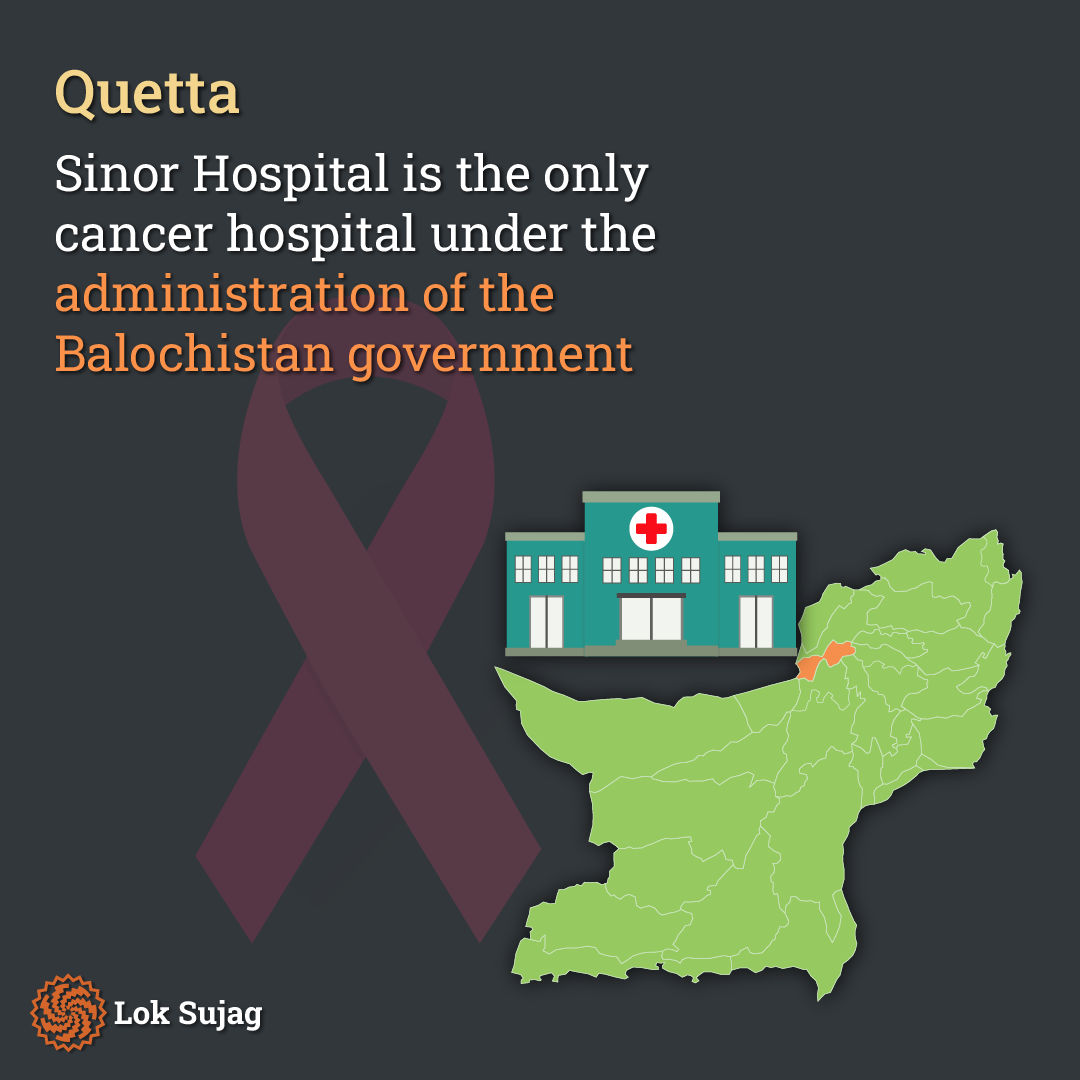
All district Zakat chairpersons in Balochistan received the budget for the year 2021. However, the former Secretary of Religious Affairs halted the execution of the budgets for the years 2022-23 and 2023-24. On this issue, they have negotiated with the new Secretary of Religious Affairs, Nadim Rahman. He stated that due to the expiration of the term of the former provincial Zakat Council Chairman, the body responsible for budget allocation no longer exists.
Zain ul Abidin stated that in these times of unemployment and rising prices, amid distress times, efforts are made to provide immediate relief to disabled people. In this regard, he met with the Chief Minister of Balochistan and all the Zakat committee chairpersons. They were made aware of the concerns and reservations and assured they were committed to finding a solution.
Ayesha travelled 275 kilometres from Dera Murad Jamali to bring her mother to Quetta. After three years of treatment, her mother is now cancer-free, but she has to visit the provincial capital every three months for a check-up.
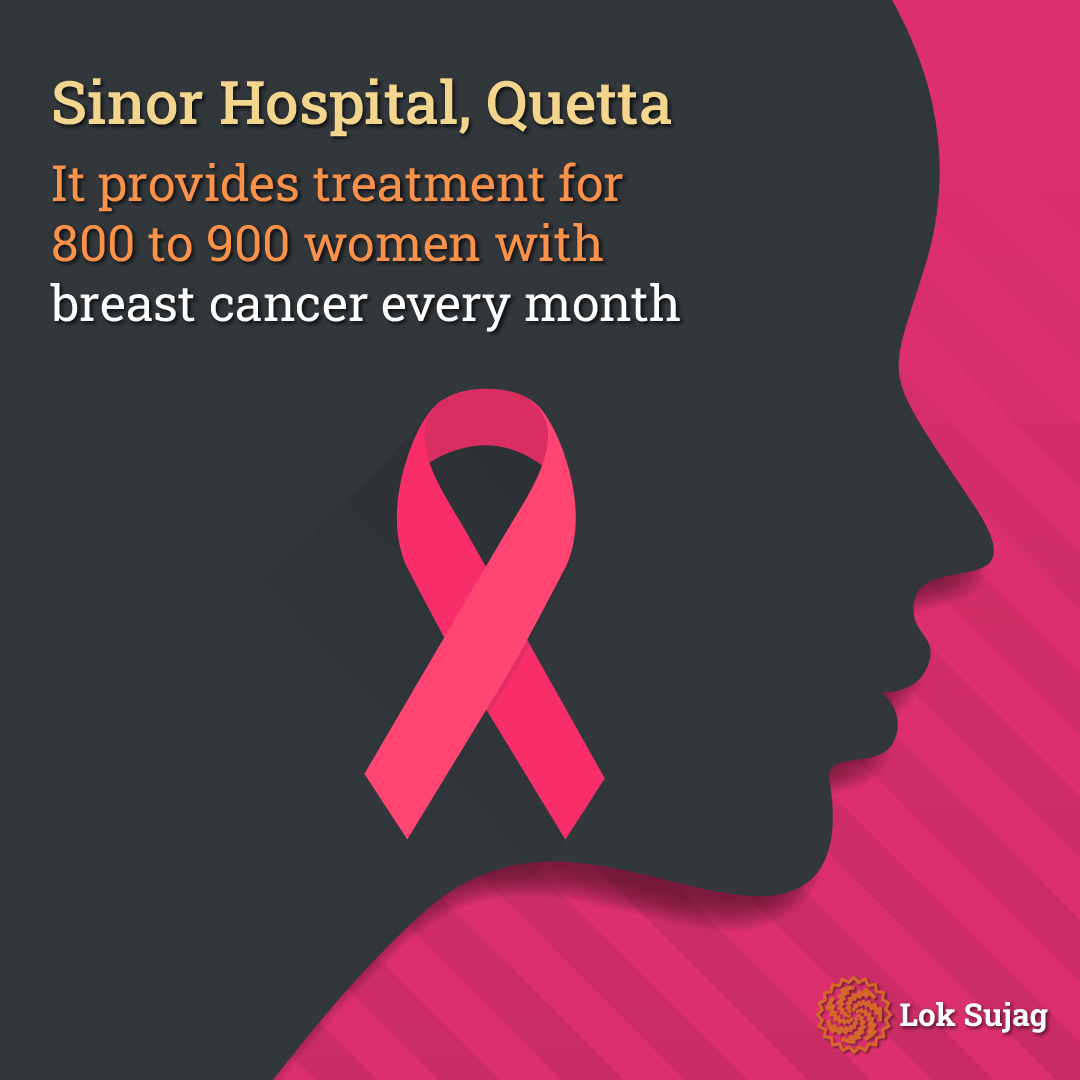
Ayesha mentioned that during the recent floods in Balochistan, their home and livestock were washed away. Now, her father is a daily wage labourer and the sole household provider.
“Mother’s medications had run out, and then she began to experience pain. I brought my mother to Quetta hoping to get her medications, but after arriving here, I found out that the hospital had run out of funds so she couldn’t get the medicines.”
Dr Feroze Achakzai is a Radiation and Medical Oncologist consultant, providing services at the Sinar Hospital for the past eight years. He mentioned that Sinar Hospital is the only cancer hospital under the management of the Balochistan government.
According to Sinar’s records, every month, 800 to 900 women in Balochistan seek treatment for breast cancer. The expenses for treatment at Sinar Hospital are covered using funds from the Balochistan Public Endowment Fund, Pakistan Bait-ul-Mal, and Zakat funds.
Dr Feroze Achakzai mentions that they receive 12 million rupees from the Zakat Fund annually.
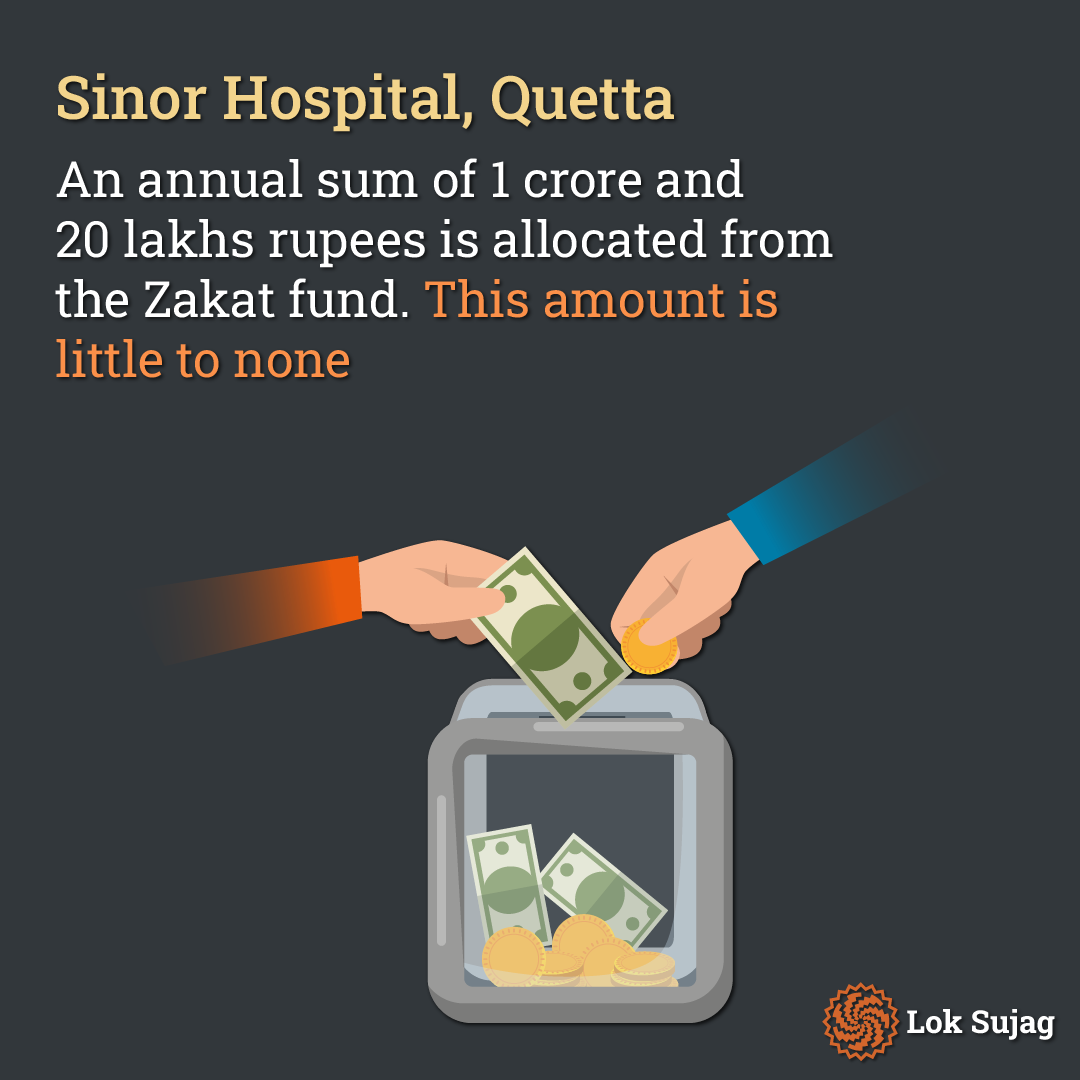
“This amount is a drop in the bucket. Cancer medications are expensive and beyond the reach of the general population. That’s why we provide patients with lower-priced medications to complete their treatment. The annual Zakat fund gives medicines worth five to six thousand rupees to one patient.”
Dr. Feroz states that the non-payment of funds has led to a shortage of medicines in our inventory. We have written to the Department of Religious Affairs multiple times, alerting them and requesting that the Zakat fund be increased from 120 million rupees to 500 million rupees. However, there has been no response to our requests.
Secretary of Religious Affairs in Balochistan, Nadeem Ur Rahman, has been in charge for a few months. According to him, they provide zakat to over 32,000 eligible individuals at a rate of 1,500 rupees per month. The Department of Religious Affairs also employs students, dowries for weddings, and wheelchairs for eligible individuals. They allocate funding to various hospitals for the treatment of patients.
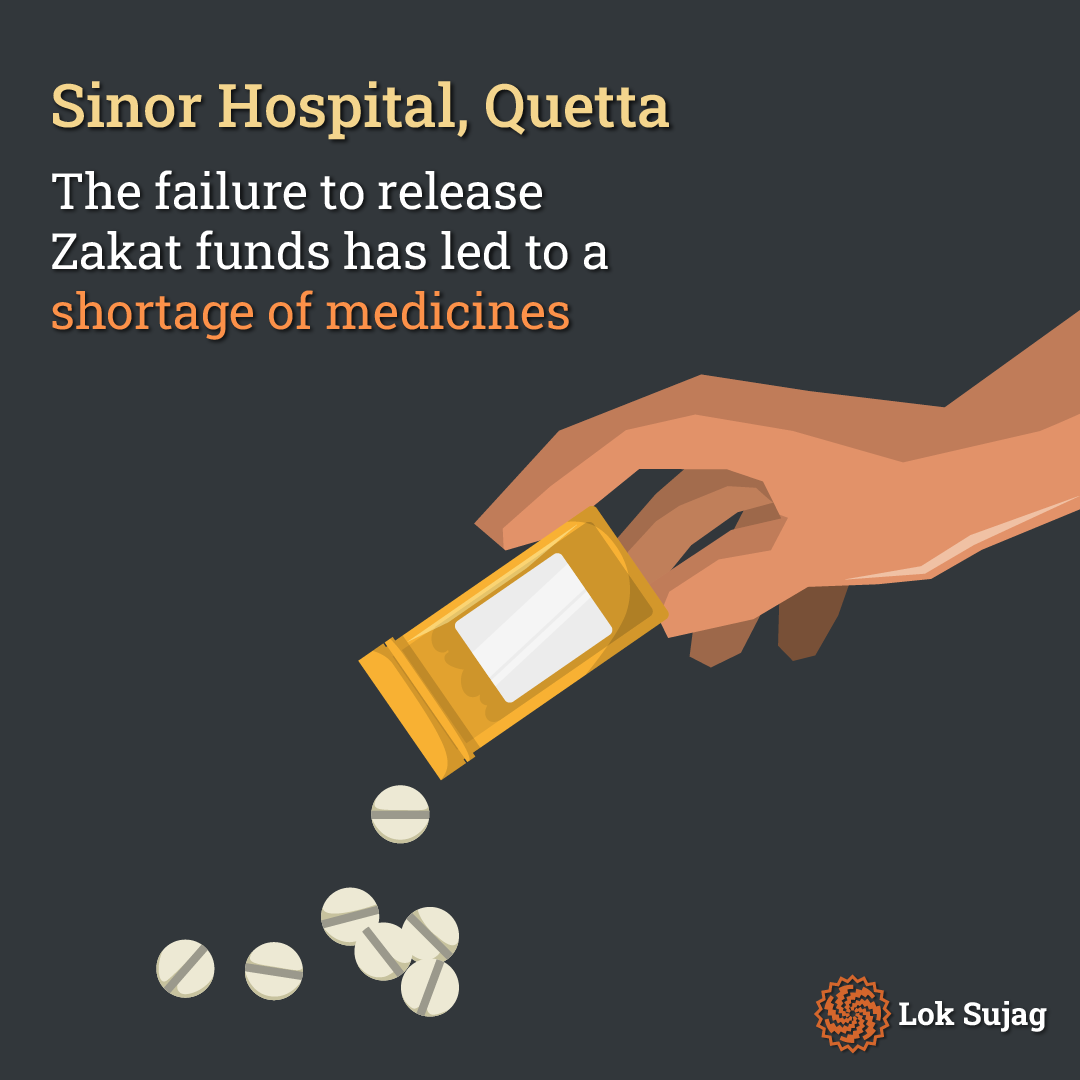
Currently, the highest amount is being allocated to the only breast cancer hospital in Balochistan, Sinaar, which receives 12 million rupees. This amount will be increased in the coming year, with the hospital expected to receive 15 million rupees annually.
He further mentioned that they are introducing a biometric system to provide benefits and make the system more transparent and efficient for eligible individuals.
According to him, after collecting the Zakat funds from all over the country, the federal government allocates these funds to provinces based on their population.
Also Read
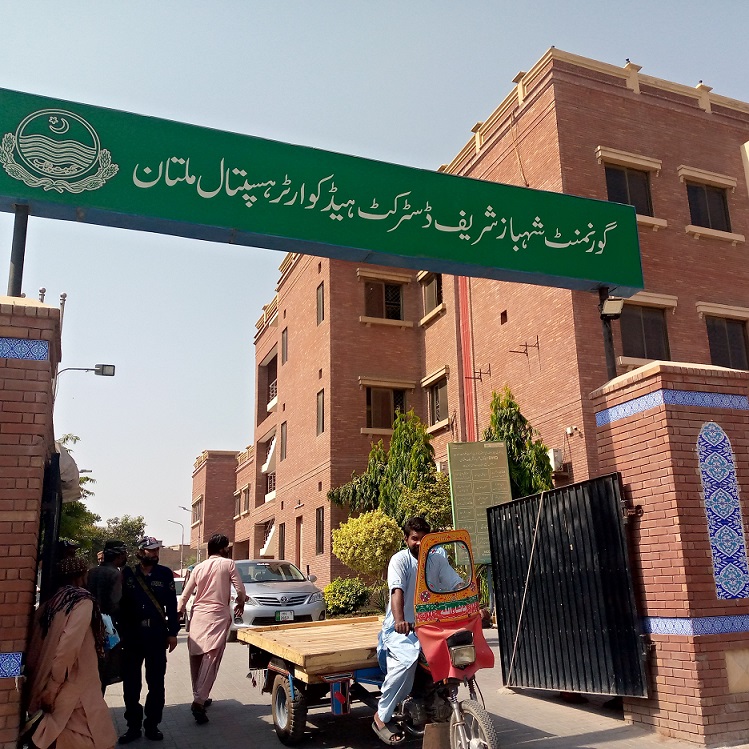
Medicine shortage hits hepatitis patients in Multan: A growing health crisis
The delay in fund release in Balochistan is attributed to the absence of a provincial Zakat council. The Department of Religious Affairs has sent a summary to the Chief Minister of Balochistan, but it has not been approved yet.
He further expressed hope that the Chief Minister of Balochistan would soon approve the summary, which would establish the provincial council and ensure the fulfilment of obligations towards deserving individuals.
The nine-member provincial Zakat Council is presided over by a present or retired judge from the judiciary. The High Court Commissioner in Quetta submits their name for consideration. The Commissioner then sends the Chairman’s and members’ names to the Department of Religious Affairs. The Secretary of Religious Affairs presents this summary to the Chief Minister of Balochistan. After approval from the Chief Minister, the Department of Religious Affairs issues a notification for the Provincial Zakat Council. The notification specifies that at least two women aged 45 or older must be among the council members.
Published on 28 Oct 2023
